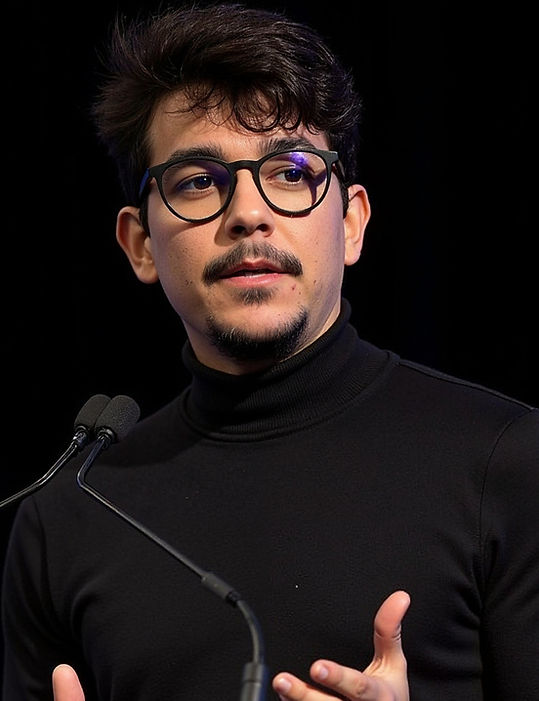Dr. Emerson Do Bú
Teaching Phylosophy
“To teach is not to transfer knowledge but to create the possibilities for the production or
construction of knowledge”
(Paulo Freire, Pedagogy of Freedom: Ethics, Democracy, and Civic
Courage, 1998).
Since the first time I was invited to share some of what I had learned throughout my
formative years, this famous Brazilian philosopher and educator’s quote has guided my actions.
It is crucial to me because it places the student at the center of the teaching and learning process.
It influences my work as a professor and mentor, as I focus on fostering a critical rather than a
passive consciousness in my students, awakening their capacity to transform the social
environment.
As a research assistant in a multidisciplinary team, I had the opportunity to comprehend
and apply the knowledge construction strategies advised by Freire to identify and intervene in
aspects that increased the Brazilian population’s access to healthcare when I was still a freshman
in college. Specifically, I worked with peripheral communities in the interior of northeastern
Brazil to identify psychosocial variables influencing people’s reluctance to seek medical care.
This drew me closer to teaching and prompted me to pursue a master’s degree in Social
Psychology after completing my five-year bachelor’s degree in Psychology. As the topic of
health and its relationship to social determinants has always piqued my interest, I examined the
social representations of individuals with the skin condition Vitiligo, as well as the prejudice of
the general public against those with the disease. At that time, I had the opportunity to complete
a one-semester teaching internship at a Brazilian public institution that is a national leader in the
teaching of Social Psychology. This was my first experience teaching undergraduates. Among
my activities as a teaching intern, I am most pleased with the fact that I designed, together with
my supervisor, experiments to introduce students to the many theories of Social Psychology in
all of the discipline’s theoretical classes. I believe, in this sense, that practical lessons in which
students get hands-on experience of the subjects under analysis are crucial for a critical and
emancipatory development.
Considering that I also had the opportunity to teach classes on qualitative methodologies
of data analysis, as well as healthcare and its social determinants in other universities, while still
a master’s student, I expanded my knowledge of participatory teaching methodologies. At that
time, I embraced Vygotsky’s Zone of Proximal Development as a key pedagogical tool to ensure
all students are taught content that is achievable yet challenging. After my master’s program, I got the opportunity to teach a course on the introductory fundamentals of Psychology at a Brazilian college. I should mention that at the end of the semester, the students gave me a very positive evaluation of my performance in class. This resulted in the institution’s department recognizing me as one the best professors in the department for Fall 2018.
During my doctoral studies, I have taught numerous Psychology topics in-person and
online, as well as research methods topics (e.g., data analysis strategies using qualitative and
quantitative approaches) in Brazil and Portugal. As a PhD candidate, I have also acquired
mentoring skills for undergraduate and graduate students. For example, in my experience as a
mentor for master’s students, I try to create a space where they feel comfortable giving their
opinions and researching ideas.
Overall, I believe that my classrooms are spaces of exploration and discovery. I can say
that my years of study and work in academia have enabled me to combine, as a teacher and
mentor, a constructivist pedagogy that emphasizes active discovery learning on the part of my
students with a Freirean pedagogy that seeks social transformation through the development of
my students’ critical sense. While this is the most natural manner for me to teach, I have learned
over the past few years the value of being adaptable. Sometimes students are not used to it, so I
keep in mind that each class is unique, and that each student has a background of experiences.
Respect is essential in this regard. I have realized daily that teaching is a learning experience.


